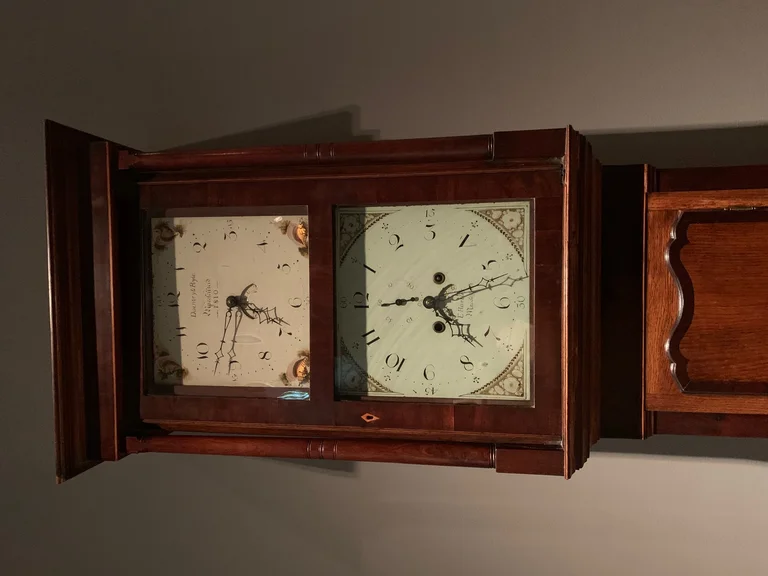At Make UK, we prefer to use the term ‘Fourth Industrial Revolution’ because that is what is happening. Each successive industrial revolution came about when humankind worked out how to harness a new source of power: first steam, then electricity and the microprocessor. Today’s new source of power is data: a new range of technologies, combined with the power to collect and analyse data as never before, providing incredible new opportunities – and challenges.

Collecting and analysing productivity data is nothing new. This clock, from a silk mill in Macclesfield, dates from 1810. It compares actual time (on the lower face) with productive time (on the upper face), thus allowing any downtime to be easily calculated. What the owners of Park Green Mill were doing 200 years ago was using the best available technology of the day to improve the productivity of the process of making silk. We want to help our members do the same today: to deliver step changes in their productivity, and cut costs, by the smart use of technology and data. By the way, this clock can be currently seen in the fascinating ‘Art of Innovation’ exhibition at the Science Museum in London.
But many manufacturers, particularly small and medium sized businesses, are at a relatively early stage of their digital journey. In 2018, just under a third of Make UK members were at the ‘pre-conception’ stage – having done little or nothing to digitise their businesses. Only 4% were at the ‘revolutionary’ stage, successfully unlocking significant improvements in productivity through the latest innovation and technological advances.
There are lots of reasons for this but if UK manufacturing is to thrive and prosper in the future, we need to step up the pace of digitisation to maintain and improve our international competitiveness. So during 2020 and beyond, Make UK will be working with members, government and other partners to try and boost understanding and awareness of the Fourth Industrial Revolution. We’ll also be thinking about the regulatory, funding and business support landscape and sharing our thoughts with government about how this could be improved to better benefit businesses. To that end, we plan to undertake a comprehensive survey of our members to update our knowledge of progress on digitisation and also the barriers that stand in their way.
There are range of other issues where the UK needs to take action such as improving performance on digital skills; ensuring manufacturers are supported to combat cyber security threats; or helping with change management techniques so that our people can adapt and embrace new ways of working and technologies. But this alone is not enough - we need more action on transport and digital infrastructure,a technology such as the Industrial Internet of Things simply won’t work without high-capacity, high-speed broadband the length and breadth of the country. We’ll be working with members and partners during 2020 and beyond to try and fix these too.
So if you are an SME in the ‘pre-conception’ phase, what should you do? Well, the key thing is to start. Try a few things out. See what works and what doesn’t and go from there. None of this has to be hugely expensive at first. Cheap, off-the-shelf-kit such as an Amazon Echo Dot or a cheap webcam – can bring dividends. The Institute for Manufacturing at the University of Cambridge has a great initiative called Digital Manufacturing on a Shoestring check out their website for more details and use cases – such as using QR codes for simple inventory management, cutting out wasted time searching for components in the wrong place.
Remember to look in your local area for advice and support networks. If you are a Make UK member, then our regional membership teams can point you in the right direction, or partner you up with other local members for some peer-to-peer support. Or come along to a local event – there are plenty, often organised by Make UK or one of our partners and there are also lots of interesting case studies online. The Made Smarter Initiative – funded by government and supported by Make UK – is currently being piloted in the North West. Their website has some really good examples of adoption of digital manufacturing techniques by SMEs.
Digital manufacturing is here to stay and it’s something that every manufacturer needs to understand and embrace to stay competitive. While it may seem confusing and expensive, the good news is that it doesn’t need to be. There are plenty people out there offering help and support along the way.
We’re hugely excited about the major change in the manufacturing landscape. We’ll be doing all we can to help and support our members to take advantage of the tremendous possibilities it will bring.
